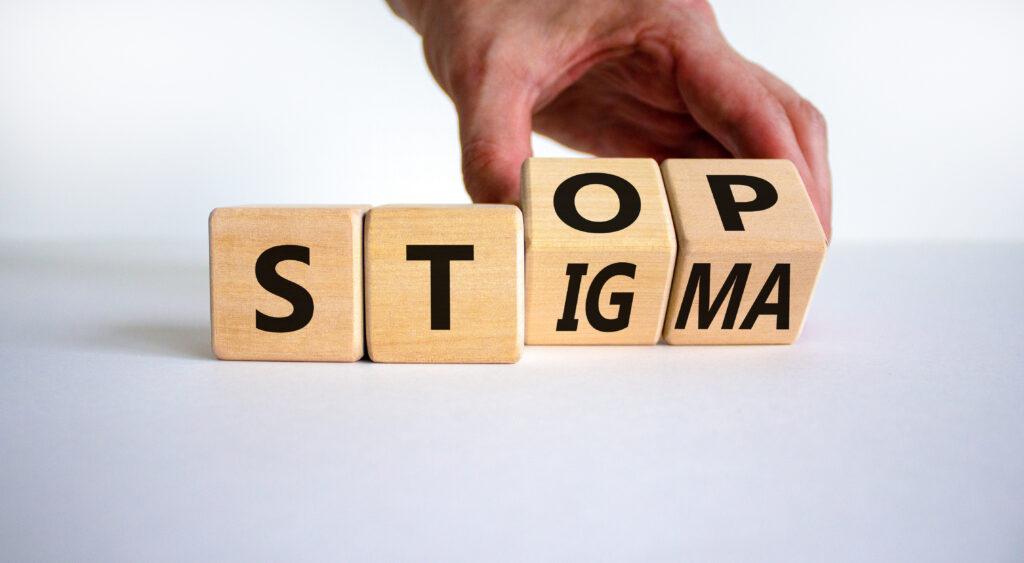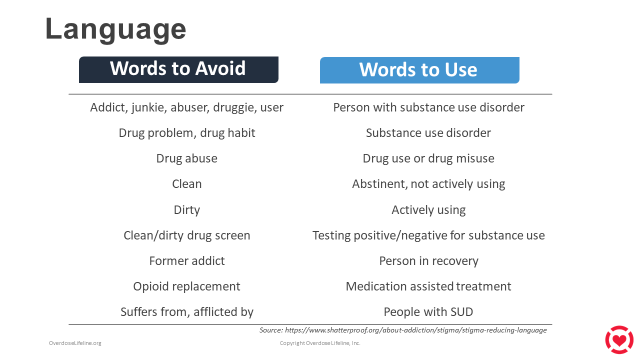
Reducing Stigma

Rural Response Network
What is Stigma?
It is human nature to fear and stigmatize what we don’t understand, and when it comes to addiction, most people don’t see it as the disease that it is. Stigma is a negative stereotype of mental illness and substance use disorder. It occurs when someone is seen in a negative way because of his, her or their mental health condition. Sometimes, stigma is even an internal feeling in those with mental illness or substance use disorder.
According to the National Alliance on Mental Illness (NAMI), stigma surrounding mental illness and substance use disorder harms those people affected by conditions. It can make people feel shame and prevent them from seeking help.
According to Overdose Lifeline – 76% of Americans believe that addiction is a moral problem.
How Does Stigma impact individuals with mental illness/substance use disorder
The impact of stigma can be significant for individuals living with mental illness or substance use disorders. It can lead to feelings of shame, isolation, and self-stigma, which can make it harder for people to seek help, access treatment, and maintain recovery. Stigma can also make it harder for people to find and keep employment, housing, and social support. In fact, around 90 percent of people with SUD do not receive treatment.
- The stigma associated with SUDs can cause people to hide their drug use due to fear of shame or discrimination. This may cause them to avoid treatment altogether.
- It can lead to social isolation as friends and family avoid contact with individuals who have a substance use disorder because they fear being stigmatized themselves.
- Negative attitudes also impact access to medical services for people who do seek treatment: insurance may not cover SUD related healthcare, and fear of the legal system can make people hesitant to ask for help.


Rural Communities
Rural communities are unique; and rural residents experience stressors related to economics, drug addiction, sustainable food sources, along with lack of access to medical care services and rural broadband. Farmers (who are part of rural communities) are often burdened with additional challenges and stressors unique to their occupation, including unpredictable weather, labor shortages, market pressures, international trade agreements, and environmental concerns.
Rural Americans are less likely to receive substance use treatment than other Americans. In many cases, this is because smaller communities tend to hold more stigma toward addiction. They may view it not as a disease but as a personal failure.
Some people try to avoid this stigma by denying that they need treatment, especially since most small towns feature little privacy and large amounts of gossip.
Other factors include lack of medical insurance, distance to healthcare providers, lack of education, and a sense of duty and responsibility to take of the family farm/business.
For more information:
Rural and Farm Stress | OSU Extension
Ohio’s Got Your Back | Ohio Department of Agriculture
https://www.ruralhealthinfo.org/toolkits/substance-abuse/1/need

How to reduce stigma:
Reducing stigma is important so that people with mental illness or substance use disorder feel comfortable seeking the treatment they need and deserve. Stigma reduction refers to the elimination of prejudice and discrimination against these disorders. There is a misconception that these disorders only happen to people with “flawed character” or moral failure of some kind. In reality, these disorders can happen to anyone. Risk factors associated with these disorders – such as poverty, experiencing violence, or being from a marginalized group – are also heavily stigmatized.

Language Matters:
Language is a very important component in efforts to reduce the stigma of mental illness and substance use disorder. We believe it is very important to avoid words that have negative connotations such as addict or junkie, drug habit, former addict, and suffers from and instead use words such as person with substance use disorder, substance use disorder, persons in recovery, and addicted people. Research shows that the language we use to describe addiction can either perpetuate or overcome the stereotypes, prejudice and lack of empathy that keep people from getting treatment.

For More Information on Reducing Stigma Check out the Links Below:
https://mha.ohio.gov/get-help/understanding-behavioral-health/stigma-reduction
https://www.nami.org/Get-Involved/Pledge-to-Be-StigmaFree
HOME | Stop the Stigma. (stopstigma.org)
Words Matter: Preferred Language for Talking About Addiction | National Institute on Drug Abuse
Addressing the Stigma of Addiction | Advocacy (hazeldenbettyford.org)
Remove the Stigma Language Guide
The Brains and the Disease of Addiction Reference Guide
Removing the Shame and Stigma of Substance Use Disorder
Reframing Language Guide

Are You Looking For Help or Information?
To learn more or get involved



